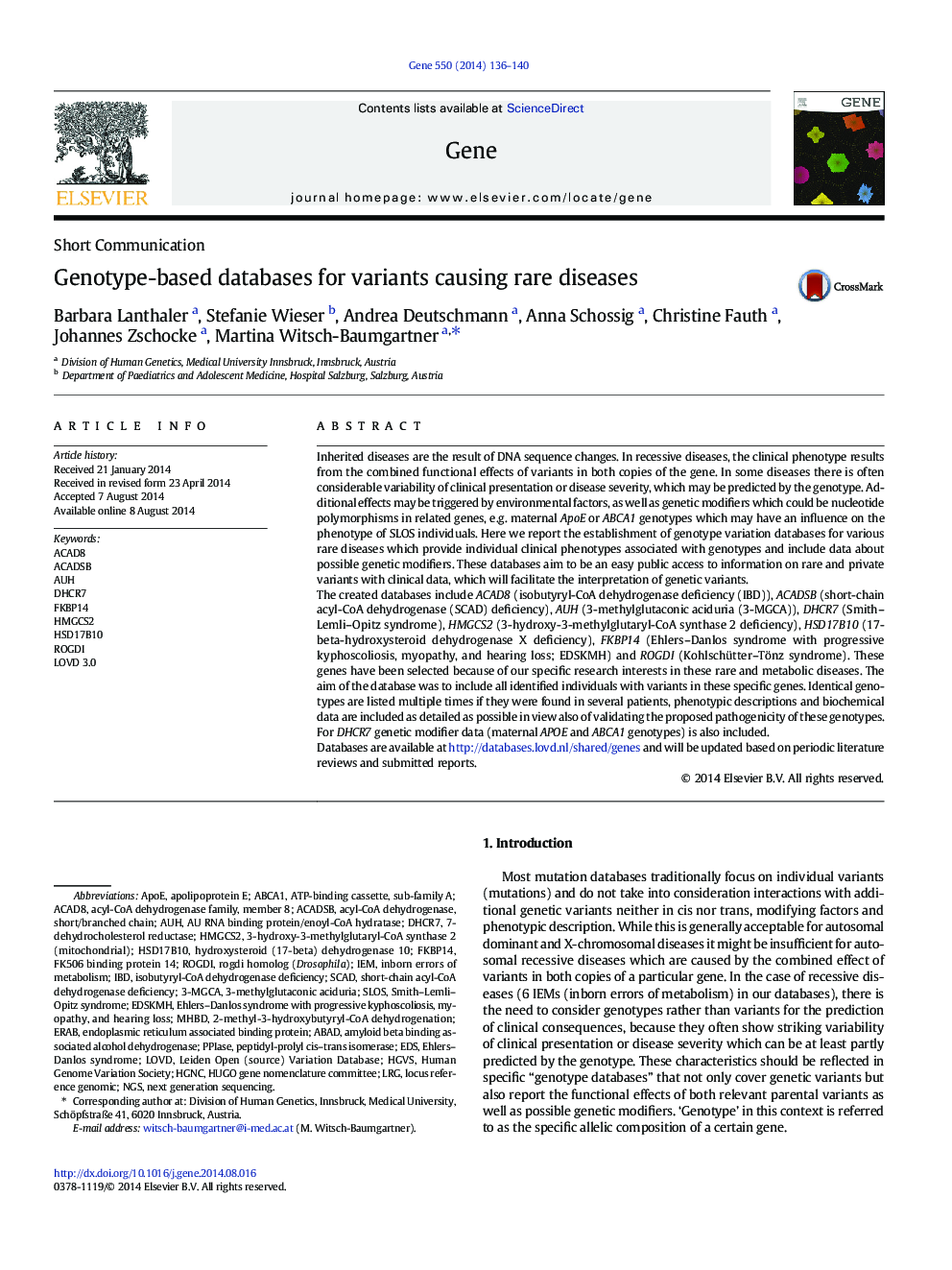| Article ID | Journal | Published Year | Pages | File Type |
|---|---|---|---|---|
| 2816191 | Gene | 2014 | 5 Pages |
•The databases serve primarily as a prediction tool for pathogenicity of variants.•The presented DHCR7 genotype-phenotype database is the largest of such collections.•Option of statistical analyses for e.g. variant spectra in diverse populations.•Submission of new variants with phenotype of individuals are highly encouraged.
Inherited diseases are the result of DNA sequence changes. In recessive diseases, the clinical phenotype results from the combined functional effects of variants in both copies of the gene. In some diseases there is often considerable variability of clinical presentation or disease severity, which may be predicted by the genotype. Additional effects may be triggered by environmental factors, as well as genetic modifiers which could be nucleotide polymorphisms in related genes, e.g. maternal ApoE or ABCA1 genotypes which may have an influence on the phenotype of SLOS individuals. Here we report the establishment of genotype variation databases for various rare diseases which provide individual clinical phenotypes associated with genotypes and include data about possible genetic modifiers. These databases aim to be an easy public access to information on rare and private variants with clinical data, which will facilitate the interpretation of genetic variants.The created databases include ACAD8 (isobutyryl-CoA dehydrogenase deficiency (IBD)), ACADSB (short-chain acyl-CoA dehydrogenase (SCAD) deficiency), AUH (3-methylglutaconic aciduria (3-MGCA)), DHCR7 (Smith–Lemli–Opitz syndrome), HMGCS2 (3-hydroxy-3-methylglutaryl-CoA synthase 2 deficiency), HSD17B10 (17-beta-hydroxysteroid dehydrogenase X deficiency), FKBP14 (Ehlers–Danlos syndrome with progressive kyphoscoliosis, myopathy, and hearing loss; EDSKMH) and ROGDI (Kohlschütter–Tönz syndrome). These genes have been selected because of our specific research interests in these rare and metabolic diseases. The aim of the database was to include all identified individuals with variants in these specific genes. Identical genotypes are listed multiple times if they were found in several patients, phenotypic descriptions and biochemical data are included as detailed as possible in view also of validating the proposed pathogenicity of these genotypes. For DHCR7 genetic modifier data (maternal APOE and ABCA1 genotypes) is also included.Databases are available at http://databases.lovd.nl/shared/genes and will be updated based on periodic literature reviews and submitted reports.
